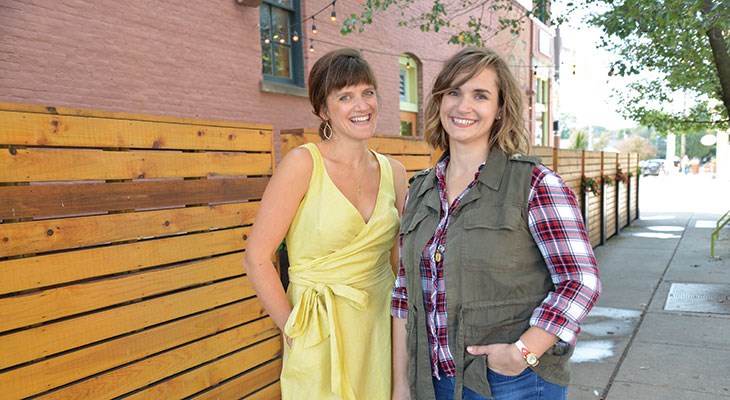It often takes some time for early-stage entrepreneurs to learn the value of authenticity in their pitches to investors. That has certainly been the case for Laura Adiletta and Cullen Naumoff, co-founders of Farm Fare.
“We need patient investors, people who are really interested in sustainability,” Adiletta says. “If you're not it, that's great. But who do you know that is? We wasted a lot of time trying to make our model fit into something that wasn't right for us. The best path forward for us is really kind of finding our voice.”
Farm Fare is a technology platform and a new model for regional food supply chains that seeks to build ties among food hubs and institutional customers to better compete against the industrial food system’s economies of scale.
“All of these small businesses are trying to replicate an entire supply chain with really small resources,” Adiletta says. “What we are doing with our technology is identifying those resources throughout a region and trying to connect them with one another to make a network in which they can share those expensive overhead infrastructure costs and thus, lower their operating costs by working together.”
We spoke with Adiletta and Naumoff about the lessons they’ve learned trying to drive systemic change in the multi-billion-dollar global food industry.
Find the right fit
Farm Fare was founded in 2016 by Adiletta, Naumoff and Great Lakes Brewing Co. co-founder Daniel J. Conway.
“Dan is really passionate about more sustainable agricultural and business practices,” Adiletta says. “He has given us the resources financially to this idea that's very antithetical to the way that it's done in food distribution and food service and try out new things and build a company around that. The vast majority of founders don't have access to that kind of capital. So we definitely started with a leg up, someone who could open some doors and provide the financial resources necessary to get a pilot going.”
There have been some difficult moments along the way, Adiletta admits.
“We discovered that venture capital wasn't the right fit for us because of the way that these investors look for returns and how quickly they want to take those returns out of startups,” Adiletta says. “Our business is not suited for that. We're really targeting system change. We think we can change the way that at least a much larger portion of food is grown in the U.S. To do that we have to be a little bit patient and that's not the best fit for venture capital. So we embarked on this path of: what is the right fit for us?”
Naumoff brings experience to Farm Fare from her time spent as director of sustainable enterprise at The Oberlin Project, an initiative to create a more sustainable community in the Lorain County city. She says the perception that people have of the agriculture industry does not match reality, requiring education as to the reason for the launch of Farm Fare.
“We have this image of all these small farmers that are contributing to the marketplace,” Naumoff says. “But according to the U.S. Census, only 4 percent of farms contribute to 70 percent of total agriculture sales. That’s the issue. Small farmers don't have the supply independently to compete. But when you bring them together, collectively, they can then access larger markets.”
The duo has learned that there are resources available for those new to dealmaking.
“Laura and I are more food systems experts and we aren't necessarily dealmakers,” Naumoff says. “The state has a bunch of well-funded entrepreneurial resource centers to help you find other ways to finance your business. Learning about these financing tools has been very eye-opening. It's just not like you have to choose either venture capital or banks. There's middle ground in there with different innovative ways to think about it. So don't just give in to the normal traditional structure.”
Find a champion
One way to boost your odds of success is to find someone — such as Farm Fare has with Conway — who can be a champion for your vision and the goals of your early-stage company.
“Your network is really everything in business, whether that's making a sale or finding funding,” Adiletta says. “It's something that kind of sounds obvious to say, but when you're living that and you're realizing how much gets done with doors that are opened behind the scenes, it can be pretty eye-opening as a new entrepreneur.
“If you don't have a champion, it's probably worth stopping and asking yourself, ‘Why not?’ Are you not communicating your value well enough? Is the business that you're pursuing not valuable enough? It's been very easy for us to convert even strangers into advocates and champions. Find a champion and if you don't have one, find out why and fix that.”
As of now, Farm Fare is operating in Northeast Ohio. The business was a finalist at the 2019 Women Startup Challenge in New York and Naumoff hopes to continue the momentum.
“We're raising capital to build the next version of our software product,” she says. “That new product will take us into two new markets in New York and the Mid-Atlantic, kind of spinning it as Washington, DC. Our goal is to have those two markets using our platform at the beginning of 2020.”




